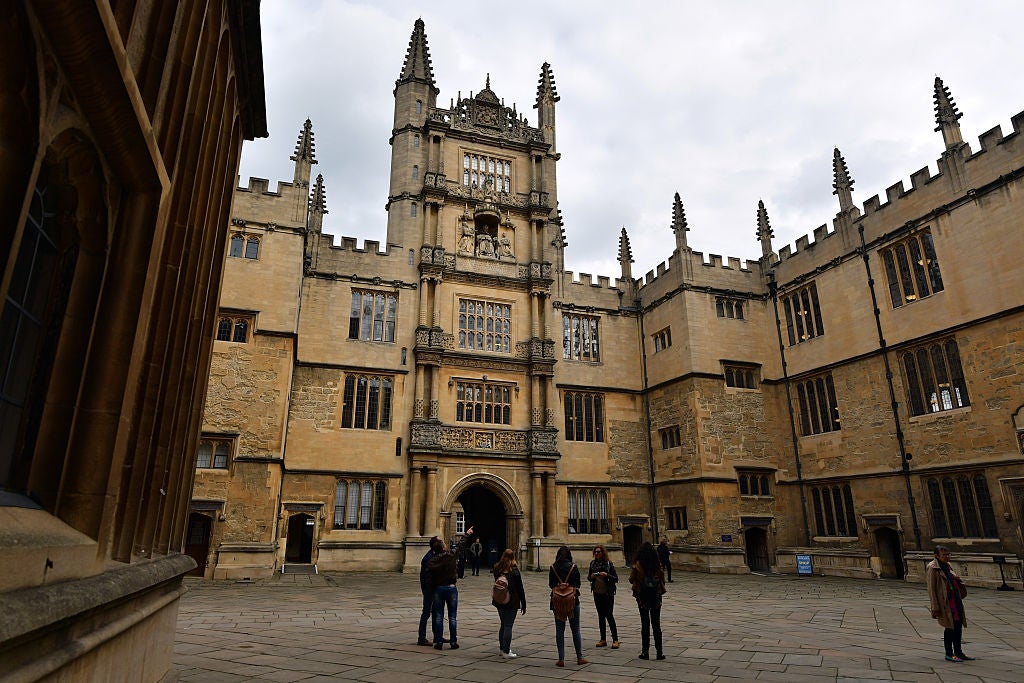Many of the celebrated white men of literature would want to be taken off the Cambridge English syllabus
Many of the white men of literature were rebels, radicals and questioners, and would be protesting against these modern orthodoxies and sacred cows

Your support helps us to tell the story
From reproductive rights to climate change to Big Tech, The Independent is on the ground when the story is developing. Whether it's investigating the financials of Elon Musk's pro-Trump PAC or producing our latest documentary, 'The A Word', which shines a light on the American women fighting for reproductive rights, we know how important it is to parse out the facts from the messaging.
At such a critical moment in US history, we need reporters on the ground. Your donation allows us to keep sending journalists to speak to both sides of the story.
The Independent is trusted by Americans across the entire political spectrum. And unlike many other quality news outlets, we choose not to lock Americans out of our reporting and analysis with paywalls. We believe quality journalism should be available to everyone, paid for by those who can afford it.
Your support makes all the difference.Once again, self-appointed defenders of orthodoxy in the Daily Mail and Telegraph have stepped up to defend… white male authors. The villains, students (those millennials, always the problem), many of them people of colour, who engaged in conversation with their lecturers and, shock horror, requested to bring about change. They asked that the “whites-only” club of literature be opened up to the rest of the non-white world and some classics left off the syllabus.
It’s a typical double-bind that people of colour face. Protest and be written off as extremists, engage in the formal process to raise issues and be successful only to find you are depicted as protestors. In the same breath, detractors will say they are defending free speech on campuses while denouncing challenge and change. It is perhaps no wonder that Oxbridge institutions consistently fail to reflect the diversity and talent of our community.
Many of the celebrated white men of literature were rebels, radicals and questioners, and would be protesting against these modern orthodoxies and sacred cows. Zola fled into exile for his defence of Dreyfus, George Bernard Shaw was a key figure in socialist politics, and Lord Byron joined a rebel army in Greece (although he died of disease before he saw any fighting).
For a while I was in a book group organised by my neighbours. The group had one rule, no books by white men. What this meant for a group of university-educated 20 and 30 somethings was an introduction to a set of authors and books we had often never encountered in the classroom. We set out to look for under-appreciated authors and books, reflecting a wide range of experiences and genres, as well as some more popular books we just had not got around to reading.
We delved into Ursula Le Guin’s Vietnam-era sci-fi novel The word for world is forest, read up on black feminism in Audre Lourde’s Zami, and explored the complex relationships in Maps by Nuruddin Farah – a perennial nominee for the Nobel Prize for literature but someone I had never heard of let alone read. Getting hold of a copy of Maps meant navigating second hand book sites, resulting in a German language version turning up in the post before I eventually found a copy printed in Canada. The difficulty in even finding some of the books underlined how excluded these writers are. Audre Lorde is a well-known and read in the US, but it has taken 25 years since her death for a British publisher to bring a single book to a UK audience.
Not all the books were easy. I struggled with Chris Krause’s I Love Dick, despite its huge popularity with the rest of the group, and I thought Joyce Carol Oates’ Zombie was stomach-churning in its graphic violence.
Ultimately this is about clearing out a stuffy and stale syllabus that struggles to connect to students and reflects old power dynamics of empire. Love of learning, critical and analytical skills can be developed with a wide range of literature that might actually better reflect the lives of the students. Why do the defenders of orthodoxy feel so fragile about criticism? Shakespeare can stand on its own merits and its time we realised there’s a world of great literature out there.
Samir Jeraj is a freelance journalist and works in race equality. You can find him on Twitter @sajeraj
Join our commenting forum
Join thought-provoking conversations, follow other Independent readers and see their replies
Comments